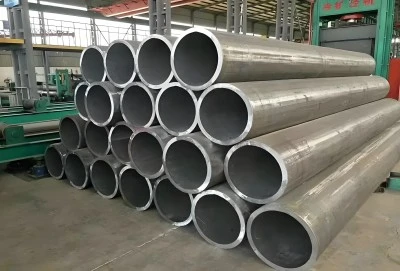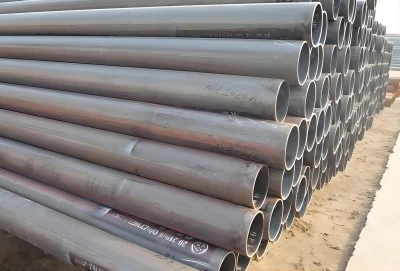Structural steel pipes serve as the backbone of modern construction and industrial applications, providing essential support and functionality across diverse projects. The customization of these vital components involves sophisticated engineering processes that ensure each pipe meets specific project requirements while maintaining structural integrity. Understanding the intricacies of steel pipe customization helps engineers, contractors, and project managers make informed decisions that impact the longevity and performance of their structures.
|
|
|
Techniques for Adjusting Pipe Diameter And Thickness:
The customization of structural steel pipes begins with precise modifications to their physical dimensions. Modern manufacturing facilities employ advanced rolling and forming processes to achieve specific diameter and thickness requirements. Cold-forming techniques allow for precise control over the pipe's outer diameter, while hot-rolling processes enable manufacturers to adjust wall thickness with remarkable accuracy.
Roll forming represents a primary method for diameter adjustment. This process involves passing steel sheets through a series of rollers that gradually bend the material into a cylindrical shape. Computer-controlled rolling equipment maintains tight tolerances, typically within ±0.5mm, ensuring consistency across production runs. The technology allows for diameters ranging from 60mm to over 2000mm, accommodating various project specifications.
Wall thickness customization requires careful consideration of load-bearing requirements and environmental factors. Manufacturers utilize specialized equipment that can produce pipes with wall thicknesses from 2mm to 50mm. The process involves careful control of rolling pressure and temperature, particularly in hot-rolling applications where the steel must maintain specific crystalline structures for optimal strength.
Advanced measurement systems, including ultrasonic thickness gauges and laser measurement devices, continuously monitor dimensional accuracy during production. This real-time quality control ensures that customized pipes meet strict engineering specifications and industry standards such as ASTM A500 and EN 10210.
Role Of Coatings And Finishes In Pipe Customization:
Surface treatment and coating applications represent crucial aspects of structural steel pipe customization. These protective layers enhance durability, corrosion resistance, and aesthetic appeal while extending service life in challenging environments. Modern coating technologies offer numerous options tailored to specific application requirements.
Hot-dip galvanization remains a popular coating choice, providing excellent corrosion protection through the application of a zinc layer. The process involves immersing pipes in molten zinc at temperatures around 450°C, creating a metallurgical bond that offers superior protection compared to traditional paint systems. The resulting coating thickness typically ranges from 45 to 85 microns, depending on the base material and environmental exposure requirements.
Epoxy-based coatings provide another customization option, particularly suitable for pipes exposed to aggressive chemicals or marine environments. These coatings can be applied in multiple layers, with thickness variations from 250 to 500 microns. Modern epoxy systems incorporate advanced additives that enhance UV resistance and prevent chalking, ensuring long-term performance in outdoor applications.
Specialized surface preparation techniques, including abrasive blasting and chemical cleaning, ensure optimal coating adhesion. Quality control measures involve holiday testing, adhesion testing, and coating thickness measurements to verify compliance with international standards such as NACE and ISO specifications.
Welding And Joint Options For Custom Structural Steel:
Welding represents a critical aspect of structural steel pipe customization, enabling the creation of complex assemblies and ensuring structural integrity. Modern welding technologies offer various joining methods, each suited to specific applications and performance requirements.
Submerged arc welding (SAW) proves particularly effective for large-diameter pipes, providing high deposition rates and excellent joint quality. The process utilizes a continuous wire electrode and granular flux, creating deep penetration welds with minimal defects. Automated SAW systems maintain consistent travel speeds and parameter control, ensuring weld quality across long seams.
Gas Metal Arc Welding (GMAW) offers versatility for custom pipe fabrication, particularly in situations requiring precise control over heat input. Modern GMAW systems incorporate pulsed power sources that optimize metal transfer and reduce spatter, resulting in clean, strong joints. The process allows for various joint configurations, including butt joints, lap joints, and complex intersections.
Non-destructive testing methods, including radiographic testing, ultrasonic inspection, and magnetic particle examination, verify weld integrity. These quality control measures ensure that customized pipe assemblies meet structural requirements and comply with relevant codes such as AWS D1.1 and API standards.
LONGMA GROUP Structural Steel Pipe Customized:
LONGMA GROUP has solidified its position as a premier manufacturer and supplier of tailored structural steel pipes, earning a reputation for excellence in the production of ASTM A500 structural tubing across a spectrum of grades, including A, B, and C. This commitment to quality and specialization has enabled them to cater to a wide array of project specifications in both the industrial and construction sectors.
With a robust manufacturing infrastructure, LONGMA GROUP is capable of producing structural steel pipes with outer diameters that span from a modest 114.3mm to an impressive 1422mm. This extensive range ensures that they can meet the unique and varied demands of clients, providing solutions that are tailored to fit the specific contours of each project.
LONGMA GROUP's dedication to customer service extends beyond the production line, with a strong emphasis on technical support during the critical specification and design phases of a project. This proactive approach ensures that clients are guided towards the most suitable product options for their applications, thereby optimizing both performance and cost-effectiveness.
The company's engineering team is a cornerstone of its service, offering profound expertise in material selection, coating systems, and joining methods. They work closely with clients to understand the nuances of each project, taking into account not only the functional requirements but also the environmental conditions that the structures will be subjected to. This holistic approach allows for the creation of robust and durable solutions that stand up to the test of time and the elements.
If you are choosing your customized structural steel pipe manufacturer, you are welcome to contact us at info@longma-group.com.














